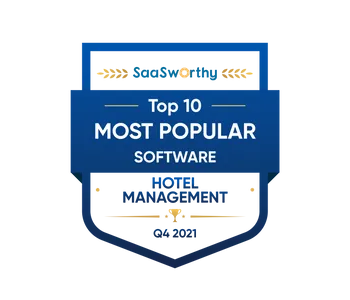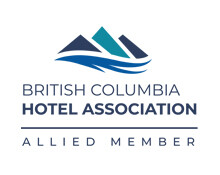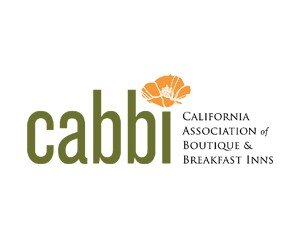The pathways of communication between businesses and consumers have changed a lot in recent years. It wasn’t really that long ago when our only options for contacting a business were by phone, post or by physically popping in. Nowadays, in addition to these traditional methods of communication, most businesses also engage with customers via email and social media. In fact, digital has fast become the preferred method of communication between consumers and businesses.
Because communication is key to building customer relationships, it’s important for all businesses to be accessible through the platforms their customers use and prefer. This is especially true for the hospitality industry, which is now beginning to connect with guests via mobile messaging.
Mobile Messaging Makes Sense for the Hotel Industry
Just about everyone texts, from teens to grandmas. Why does everyone do it? Because it’s the quickest and most convenient way to get your message across to someone who isn’t right in front of you. Eighty-five percent of international travelers travel with a mobile device, so it makes sense for lodging operators to use mobile messaging to connect with guests.
Because texting is so simple and quick and well within our comfort zone, many guests prefer to engage with hotels this way rather than calling or visiting the front desk, which requires more effort.
The convenience that mobile messaging offers guests motivates them to be proactive in requesting information and services to enhance their stay, improving the guest experience and boosting ancillary sales too.
Mobile messaging also offers guests with complaints a convenient and less confrontational avenue through which to voice their concern in the moment — rather than very publicly online after their stay.
If managed right, mobile messaging has the potential to increase customer satisfaction and reduce negative guest experiences by helping hotels build trust with guests, learn more about them, and develop stronger customer relationships.
How Hotels are Using Mobile Messaging to Engage Guests
Currently, most hotels are focused on using mobile messaging primarily as a service channel rather than a promotional one, and are achieving excellent results. Text messages can be used to confirm reservations, let guests know when their room is ready, welcome guests to the property, offer additional services, receive guest requests and to thank guests after check-out. Using mobile messaging to communicate with guests in this manner is an efficient and effective way to personalize the guest experience.
Aloft Hotels’s cute spin on texting for room service gained a lot of attention when it was launched last year. The Aloft TiGi (Text it. Get it.) Emoji Room Service Menu allows guests to order room service kits (like the The Hangover consisting of two bananas, Advil® and two bottles of vitaminwater®) by simply texting the corresponding emojis on the menu to the hotel’s dedicated TiGi number.
In addition to SMS, properties are taking advantage of popular messaging apps like WhatsApp and Facebook Messenger, using dedicated accounts. Starwood Hotels uses WhatsApp, BBM and iMessage to allow guests to contact concierge services before, during and after their stay, while Hyatt Hotels uses Facebook Messenger to talk to customers.
After setting up a dedicated phone number, properties using SMS or a messaging app such as WhatsApp can get started by promoting the service alongside contact information on their website, in guest email communications, at the front desk, and on in-room welcome notes.
Some hotel brands offer a messaging platform as part of their mobile hotel app. As well as mobile booking, rewards account access, mobile check-in and mobile room keys, the Marriott Mobile App offers Mobile Requests, which allows guests to send text-style messages to the front desk.
Mobile Messaging Tips for Independent Hotels
Mobile technology is a way of life now; it’s only natural for the hotel industry to embrace it. For independent lodging operators who are considering adding mobile messaging to their customer service channels, we have compiled some tips to consider before getting started.
Encourage guests to opt in.
As mentioned above, properties should promote the fact that they are accessible to customers via mobile messaging — on their website, in emails and on property. Encourage guests to make the first contact through this channel; if they reach out, you can be confident they will appreciate further messages that will enhance their stay.
Guests’ mobile phone numbers should be recorded in guest profiles, allowing for proactive contact for future stays.
Make a mobile messaging management plan.
Mobile messaging has high potential for guest engagement, so it is vital for the channel to be managed effectively.
One of the first things to consider is that mobile messaging is all about convenience and speed of response, so a member of staff should be assigned to monitoring and managing incoming messages and conversations at all times during advertised business hours. Aim for fast response times under 10 minutes.
Mobile messaging is designed to be a more efficient mode of communication, but this isn’t necessarily so when messages get complex and the back and forth goes on and on. Therefore, it’s important to know when to switch to phone or email for more complicated issues.
If the responsibility of monitoring and managing messages is to be shared among staff members, consider training to ensure timely responses and service consistency.
Use a personal yet professional tone.
Texting is much more private and personal than tweeting or posting on social media. Communicating with customers in this way is a privilege, so make sure hotel messages are friendly, personalized and professional. Avoid sending text messages that sound canned — this can be achieved as simply as using personal sign-offs and emojis.
Collect data.
Because mobile messaging offers such a high level of accessibility, it has great potential for helping properties get to know their guests. Valuable customer data can be gathered from messages, especially those that shed light on a guest’s needs and preferences. Relevant information like allergies, transportation requests, amenity enquiries, etc. can be recorded in guest profiles in the property management system (PMS) or CRM for proactive personalization of future stays.
While mobile messaging shouldn’t replace a property’s other customer service channels like email and voice, offering guests this additional avenue of communication makes a lot of sense today. If managed well, mobile messaging can be a very successful channel for personalizing and enhancing the guest experience — it’s no wonder more and more lodging operators are embracing this option.




























